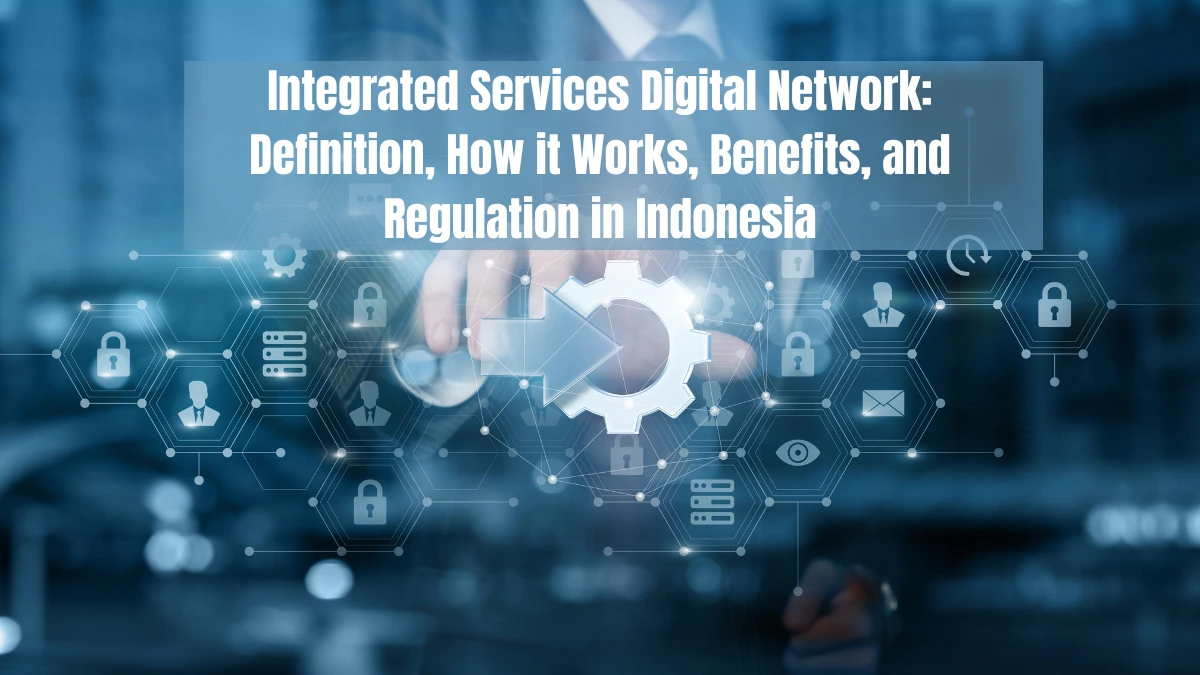Integrated Services Digital Network (ISDN) was the solution to the need to transmit voice, data, and even video seamlessly over a single network.
Integrated Services Digital Network revolutionized how information is transmitted by integrating these various services into a unified digital framework over existing public telephone lines.
This article will dive into the Integrated Services Digital Network, from its definition, delve into its operational mechanisms, highlight the significant benefits it offers, and examine the regulatory landscape governing its use in Indonesia.
What is an Integrated Services Digital Network?

Integrated Services Digital Network (ISDN) is a telecommunications system that integrates data, voice, and image services in one unified network. ISDN uses digital transmission to transmit various types of information over the public telephone network.
ISDN has two types of services, namely Basic Rate Interface (BRI) and Primary Rate Interface (PRI). BRI is an ISDN configuration that is primarily used for voice telephony services. PRI is used to carry some Digital Signal Zero (DS0) services and data between the ISDN network and the user. PRI is generally used by large companies, offices, and corporations.
How it Works?
Integrated Services Digital Network (ISDN) serves as a digital communication standard that enables a wide variety of data transmissions. Here are some of the main functions of ISDN:
- Unified digital transmission: ISDN allows users to transmit various types of services (voice, data, image, video) over a single digital channel.
- Provides higher transmission speed: ISDN provides higher data transmission speeds, enabling faster file delivery and data transfer.
- Provides flexibility and efficiency: ISDN serves to provide user flexibility and efficiency as it requires only a single terminal for different types of communication services.
The Benefits

Integrated Services Digital Network (ISDN) has some key benefits, especially in terms of data transfer speed, being able to connect various devices and alternatives to internet connection. Here are some of the benefits of ISDN that you can experience when using it:
1. High speed and quality
One of the benefits of ISDN is its high speed and quality. It can transmit data, voice, and video faster and with better quality. That’s because ISDN has a higher data transfer rate that is up to about 10 times faster than analog telephone service (PSTN).
2. Simultaneous voice and data transmission
ISDN supports simultaneous voice and data transmission over the same line, allowing users to make phone calls while using the internet or sending/receiving faxes without interruption.
3. Ability to connect various devices
The ability of ISDN to connect various devices is another benefit that you can experience. It can connect various devices and allow them to function over the same line, such as credit card readers, fax machines, and other devices.
4. Alternative to internet connection
What cannot be underestimated is the ability of ISDN to be an alternative to internet connection. In locations that do not have broadband connectivity, this device may be an important alternative to connecting to the internet.
5. Advanced features
Another benefit of ISDN is its advanced features. It supports advanced features such as call routing, voicemail to email, and remote access.
The Regulation in Indonesia

Integrated Services Digital Network (ISDN) products sold in Indonesia must be certified by the Directorate General of Digital Infrastructure (DJID) under the Ministry of Communication and Digital (KOMDIGI). This is based on PERDIRJEN No. 1 Tahun 2020, which requires all radio frequency-based devices, including ISDN, to meet specific technical standards before being sold in the country.
DJID certification ensures that the product meets government safety and quality regulations and does not interfere with other communication devices. The certification process involves technical testing, such as frequency adjustments, safety checks, and compatibility with the surrounding environment.
Once the tests are completed, products that pass are listed in a Test Result Report, which confirms that the product is safe and ready for sale in Indonesia. This report reassures customers that the product meets technical standards and is secure.
For companies wanting to sell an ISDN in Indonesia, Type Approval Certification Services for ICT Products are available to assist with this process. This service includes preparing technical and legal documents, conducting required testing, ensuring compliance with regulations, helping companies streamline the certification process, and giving consumers confidence in certified products. [UN]

